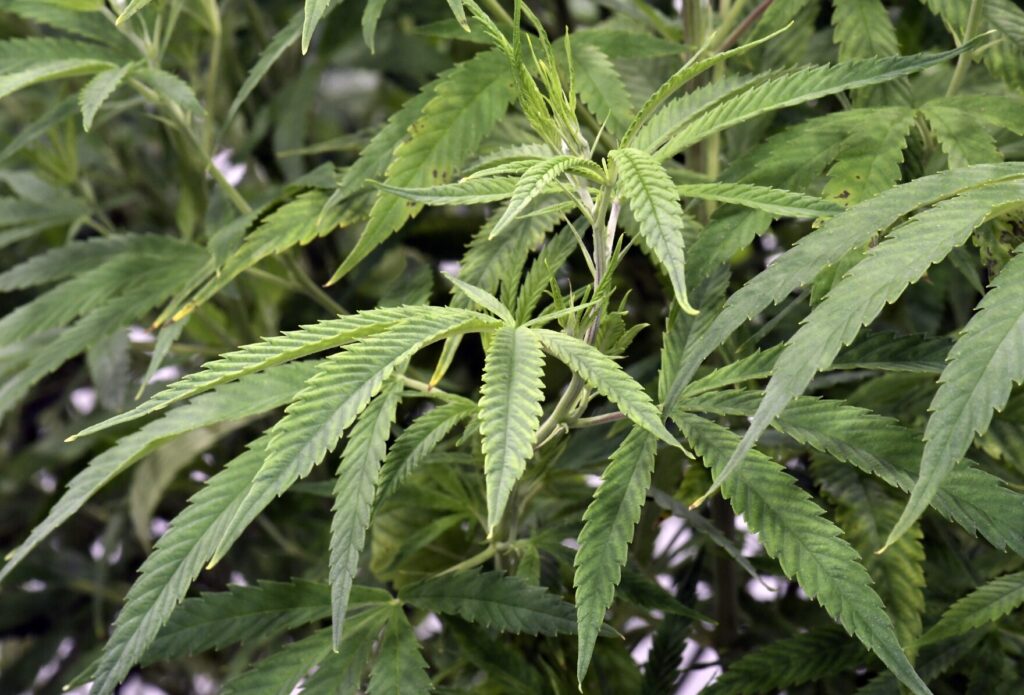Not far from downtown Peterborough is a discreet building, somewhat removed from the main road. No signs are posted, leaving no way for outsiders to learn what the building contains.
It’s for good reason – state law dictates that no markers are allowed to indicate what’s inside. To get in, visitors must pass through the main entrance, the gowning room and a second set of doors to the main warehouse. Inside is GraniteLeaf Cannabis, one of New Hampshire’s three marijuana production companies.
The plants are behind another set of locks. Finished products are stored in a bank vault.
“Realistically, you have to get through like three layers of security to actually get to anything useful,” said Matt Simon, GraniteLeaf’s director of public and government relations.
New Hampshire’s Therapeutic Cannabis Program, an arm of the Department of Health & Human Services established in 2013, allows cannabis companies — also called “alternative treatment centers,” or ATCs — to grow and distribute medical cannabis products to an increasing number of Granite Staters. The state has just three ATCs that operate a total of seven dispensaries.
Efforts to legalize recreational cannabis fell short at the State House again this year, but the therapeutic program qualifies people who’ve been diagnosed with eligible medical conditions to legally receive cannabis as part of their medical care. Demand for therapeutic cannabis is building: The most recent available data shows there were over 13,000 certified patients in 2022, and people in the industry estimate that number has grown closer to 15,000 now. A new law will also add anxiety to the list of eligible conditions, paving the way for even more certified patients to join the ranks.
However, Gov. Chris Sununu vetoed a bill last month that would’ve allowed ATCs to operate additional cultivation locations, including greenhouses.
“The legislation provides scant detail regarding safety, security and location requirements,” Sununu said in his reasoning for the veto. “These details are necessary to ensure appropriate controls on a regulated substance.”
H/T: www.nhpr.org



